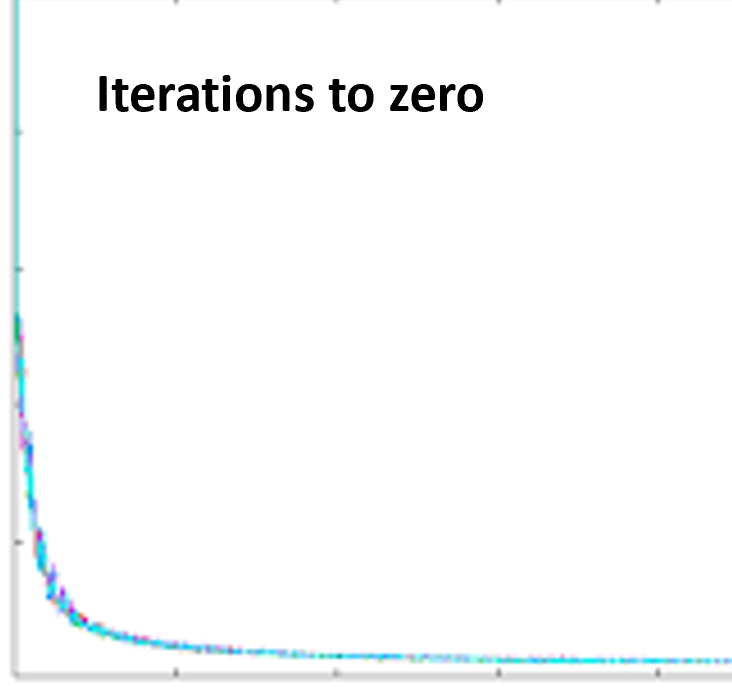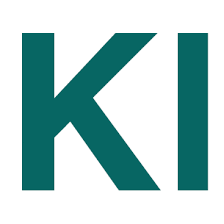Mark My Words: How AI In Education Will Overcome Fears and Transform Learning

In this article, we delve into the transformative potential of AI-power in education, the impact on exams being one aspect, and explore the implications for the future of education.
Only 95% Accurate!
During a recent gathering at the FE News Conference in Birmingham, a representative from NCFE unveiled a groundbreaking development in education assessment. We were told that with the advent of Artificial Intelligence (AI), according to their research, exams are now being marked with an astounding accuracy of 95 percent. The exam-marking algorithm has been trained on a huge dataset of student responses to past papers and has access to all the course study materials and recommended reading. It’s a top student!

This revelation signifies a huge leap forward in the integration of AI within education, promising to revolutionise the way we evaluate student performance. The potential implications of this advancement are far-reaching, as it offers the promise of not only streamlining the assessment process but also new opportunities for personalised learning experiences.
In this article, we delve into the transformative potential of AI-power in education, the impact on exams being one aspect, and explore the implications for the future of education.
The Accuracy Will Only Improve
NCFE has decided not to use AI for marking their exams just yet; the reason given is trust, or rather, lack of it. People won’t like to have their exam marked by a computer and potentially, to rub salt into the wounds, fail them. Research confirms that 52% of people are more ‘concerned’ than ‘excited’ by AI. Why’s that?
The current lack of trust is understandable as this shift challenges long-standing assumptions about human involvement in these processes. The idea that a machine can generate and evaluate questions with such high accuracy is a testament to the rapid advancement of technology, and it’s natural to feel surprised or even apprehensive about such a change. Don’t know about you, but I am surprised!
Considering the revolution in written assessment, there are also some other significant challenges to overcome to build accountability and trust. AI systems struggle with ‘explainability‘, that is, to articulate how they arrive at specific marks or decisions, unlike human markers. Then, there is unreliability, where slight input variations can result in significant output differences, and bias, arising from the data AI systems are trained on, reflecting wider societal attitudes.
Even if we accept the 5% inaccuracy, over time that inaccuracy, along with the other issues, will be eroded to zero as the programming is generative, meaning that the performance improves in time. From a human marker perspective, 5% inaccuracy isn’t too bad and who’s to say the one ‘inaccurately marked’ paper in twenty is by the AI? Having been a marker of exams myself, I’m in favour of using the algorithm; it means there is no reliance on the potential incosistency between markers, no human errors (hey, enough about me!) and we’ll be happy with the myriad benefits of consistency, accuracy, fairness in marking, no unpredictable biases, little cost and instant feedback and results. Bingo!

As the improvements accumulate, it’s likely that AI will become more integrated into the education system, and examining boards will adapt their communication strategies. Transparency about the use of AI in marking is important for maintaining trust and ensuring fairness, as will be the inevitable ‘regulatory’ processes of quality-assurance and expert interventions.
Not everyone agrees with that perspective. David Lindsay, a history teacher at St. Ambrose School in Manchester, believes:
“Humanities and social science subjects will present many problems because they require subjective judgements that only human examiners can supply. AI may be better suited to sciences , languages and maths. Teacher marking and assessment is an important part of the teacher-pupil relationship as is knowledge and understanding of learners, which the use of AI is going to erode.”
All this is happening right now, but the speed at which changes to the education system happen will depend on factors such as public acceptance, legal and regulatory frameworks, and technological advancements. It’ll be glacial.
Is This The End Of Exams As We know Them?
AI has the incredible capacity to support students beyond mere fact-finding and we have reached the point where good, and dare I say, plausible, essays and exam answers can be formulated and generated by the tech….in superspeedy time. The tech can even sit the exams; for example, OpenAI claims that GPT-4 can beat 90% of candidates in the bar exam and 88% of candidates in the Law School Admission Test in the US. These are exams which require cogitation. So, who will be able to tell the difference between a human and technology?

If exams are set and marked by AI, and AI gets better scores than almost all of the candidates, isn’t this the wrong way round? What’s the point in doing exams? Is it up to computers to test whether humans make the grade? And what will be the alternatives?
It’s unlikely that exams will be entirely phased out. Even if set and marked by AI, they can still serve valuable purposes, but their role and format may evolve. Education systems around the world are increasingly exploring alternative assessment methods. I imagine this could lead to a blended, more diverse assessment approach, including project-based assessments, portfolios, and continuous evaluation methods, and an approach to learning how to use the tech, where some kind of traditional exams coexist with more innovative and personalised evaluation methods to evaluate each examinee ‘holistically’.
We live in hope.
This Signifies Big Changes Are Afoot
These changes shouldn’t be a surprise; algorithms, statistics, data science and AI are already widely used in education. For example, AI has been used in plagiarism detection for a while, as have tutoring apps with real-time feedback. Some platforms, which rose to fame during the pandemic, can even auto-grade students’ work.
What will be the impact?
Well, Rose Luckin, Professor of Learner-Centred Design at UCL, is bang on when she says: “It could release teachers from administrative tasks, giving them more opportunities to spend time with students.”
And there is the key point about the introduction of AI; it’s not a taskmaster, but a master of tasks.
Although, there is fear and distrust about the huge disruption on the education system from AI…..
The Reality Is The Fears Will Be Outweighed By Massive Benefits
Sir Anthony Seldon is ahead of the game, or at least ahead of policymakers around the globe exploring the integration of AI in education, in co-launching a website aimed at helping educators internationally ensure “that AI enhances human intelligence and experience”. The enhancement of the human experience must surely be a prize worth having?

Recent studies have found that AI-driven education technology will improve student engagement and provide personalised learning experiences, allowing educators to focus on more one-on-one interactions.
Seldon concurs that AI has the potential to revolutionise education by not only offering customised learning paths, but also, he believes, it will free up lots of teachers’ time.
What does he think they should do with this extra time?
Well, more time for interactive and creative activities. And that’s exactly what we think at Kloodle.

The Biggest Benefit Is Freeing Up Teachers’ Time, Not Replacing Them
The integration of AI into education will transform teaching dynamics. With AI handling routine administrative tasks, teachers will be liberated from time-consuming paperwork and can redirect their focus towards fostering more interactive and creative learning experiences. This means more opportunities for activities that emphasise critical thinking, problem-solving, and nurturing creativity in or out of the classroom. Students will benefit immensely as teachers will have the space to engage in dynamic, supervised exercises that encourage independent thought and imaginative exploration.
This is where we see Kloodle fitting in. Engaging in lots of activities, especially creative ones, bolsters students’ confidence and self-awareness, motivating them to take risks, explore new concepts, and persist in their endeavours. At the outset, the school identifies the key skills which relate to this process, such as teamwork, problem-solving, critical thinking and resilience, to name but a few, and, for the students, these skills can be caught from interactions in the students’ community, taught through their educational experiences reinforced with reflections, and sought by managing their own development.

This way young people can enter society and the world of employment confident that they are enabled to think and work with self-belief creatively and adaptively across a range of disciplines and sectors.
Moreover, this innovative approach to education will prepare children for a future where AI and technology will be integral aspects of their daily lives. By incorporating AI into the learning process, students will become familiar with its applications and gain confidence in utilising it as a tool for problem-solving and creative expression. This not only enhances their adaptability in the digital age but also equips them with essential skills that will be invaluable in navigating a technologically advanced world.
By Neil Wolstenholme, Kloodle Chairman











Responses